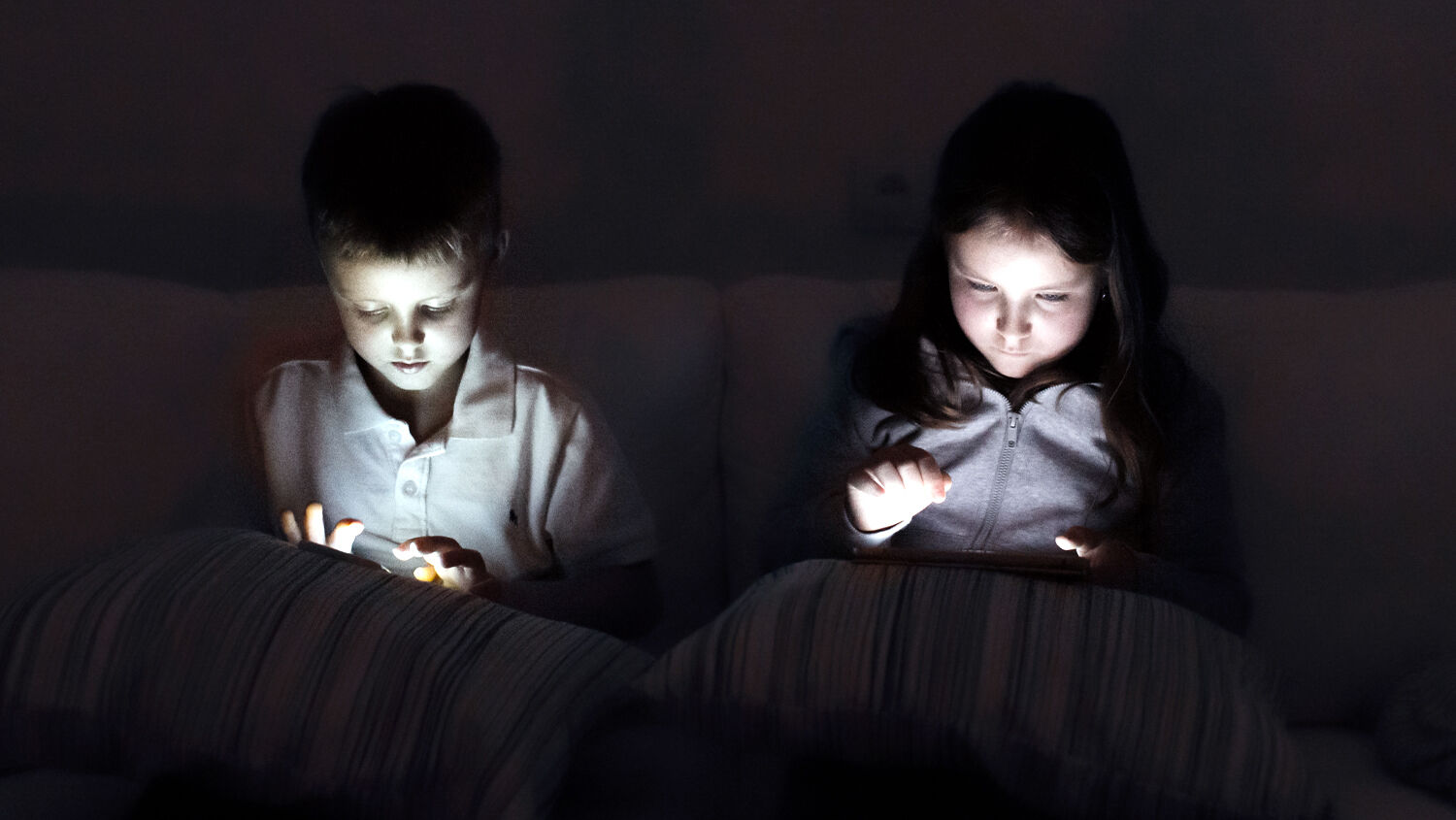
Even Preschoolers Are Hooked on Screens
For the first time ever, children in the United Kingdom are spending more time on the Internet than watching television, media regulator Ofcom reported on November 16. Preschool children (ages 5 and under) spend eight hours a week online, the regulatory agency found. Children ages 5 to 15 spent about 15 hours a week online this year, over an hour more per week than last year.
The Ofcom survey found that children’s Internet use starts very early. Fifty-three percent of preschoolers and 79 percent of 7-to-9-year-olds use the Internet. These numbers have increased substantially over the last couple of years, mostly due to more small children using tablet devices. One third of children under age 5 now have their own tablet. Many more have regular access to a parent’s device as well.
The study shows that even very young children are glued to media devices for much of their short lives. This is having an unhealthy effect on children. New studies indicate that media overuse can hamper children’s fine motor skills, eyesight and behavior.
A November 15 Daily Mail article told the story of one British couple who bought tablets for their sons, Conor (four years old) and Charlie (18 months old):
Now, in a situation familiar to mums and dads everywhere, the devices that the couple hoped would bring an extra dimension to their sons’ play have become the only “toys” they are interested in.
“Charlie is young enough to distract with other things,” says Rachel, a full-time mum from Stoke-on-Trent. “If I allowed it, Conor would be on his every waking moment.”
Swiping and tapping on a screen is no substitute for the full-body development and dexterity that come from traditional childhood games and toys. Conor is now 5, and he is struggling to learn how to write because he has not properly exercised the muscles he needs to grip a pencil. His fine motor skills are not developed to the level of a normal 5-year-old.
Other parents tell stories of buying tablets for their children and then struggling to limit their screen time. One mother said about her son, “The moment he wakes up, he’s asking for it.”
Another British mom complained that when she takes away her child’s device, the girl has a meltdown. “When I ban the iPad as a punishment, she eventually wears me down, constantly begging. To be honest, there are times when I need to send e-mails or think clearly. The tablet is a useful way to keep her occupied.”
Trumpet senior editor Joel Hilliker wrote in 2008:
Technology is a strong drug. Young people can be particularly susceptible to its evil effects. They have no built-in sense of right and wrong—no natural means of distinguishing something acceptable from something wrong. That is why it is crucial that we as parents authoritatively regulate their media usage, depriving them of wrong influences.
That was written the year after the first iPhone was released and two years before the iPad was released. How much more true that statement is today, after smartphones and tablets have become far more ubiquitous.
Mr. Hilliker continued:
Giving our children unsupervised access to technology is—put bluntly—turning our children over to some very evil influences. …
God is frank about this: A child left to himself brings his mother to shame (Proverbs 29:15). When this proverb was recorded, the author couldn’t have even dreamed of the horrors available to “a child left to himself” on the Internet or other of our modern media. …
Young people may know how to use a certain technology but be unaware of the risks it poses.
This technology does pose a major risk. The Times of England reported on November 29 that 45 percent of children have seen “hateful” content online, up from 34 percent in 2016. A lot of this content comes from YouTube, which is one of the most popular sites that children use. Among 5-to-15-year-olds, 73 percent use YouTube regularly.
Also concerning is the revelation that some social media sites don’t always abide by their own minimum-age requirements. Twenty-eight percent of 10-year-olds have profiles on popular social media platforms. However, most of these sites technically require users to be at least 13 years old to create an account.
One in three children age 8 to 11 has a smartphone of his own, which opens up the door to a whole host of evils. Some studies indicate that the average child is 11 years old when he or she is first exposed to pornography. Some say that the average age may actually be as young as 9.
The problem is not the devices themselves. The issue is what uncontrolled access to these devices can lead to.
The Bible states that the prince of the power of the air is actually Satan the devil (Ephesians 2:2). In his booklet Human Nature—Did God Create It?, Herbert W. Armstrong wrote: “This great and powerful being, even though evil, has power literally to surcharge the air around this Earth. He broadcasts!” Internet-connected devices are one of Satan’s most powerful tools, and we are handing them to some of our youngest children.
To understand God’s view on technology and how much children should use it, read “Deprive Your Children.”
